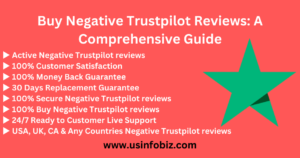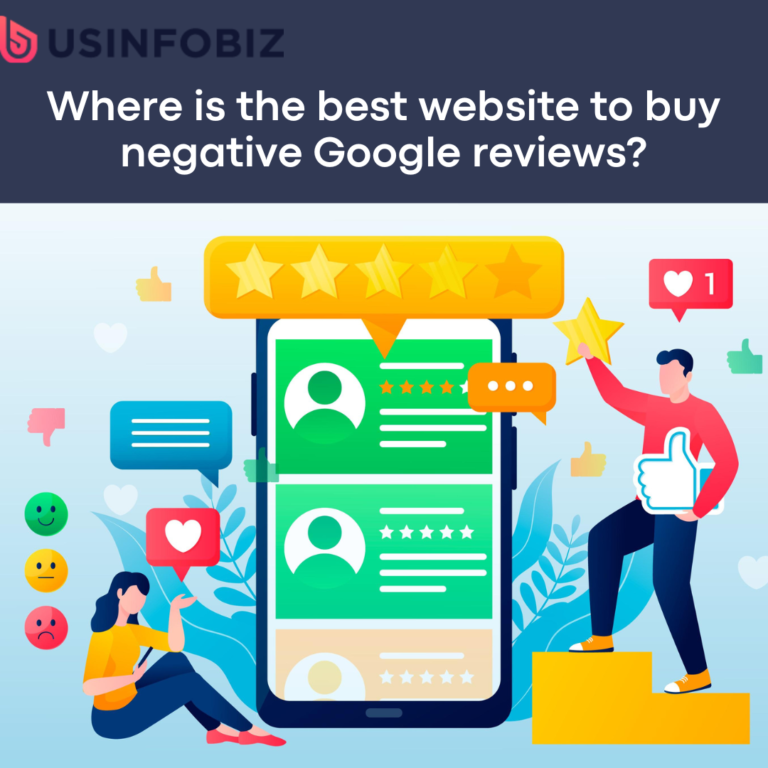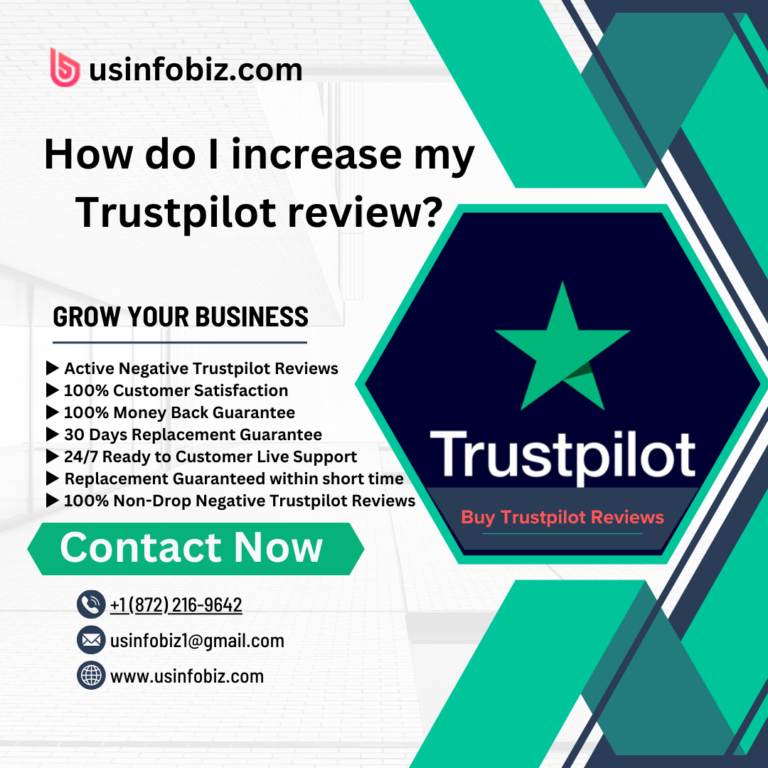Buy Negative Trustpilot Reviews: A Comprehensive Guide
Introduction
Online reviews have become the backbone of consumer decision-making in today’s digital era. Platforms like Trustpilot allow customers to express their experiences, influencing the perception and success of businesses. However, not all reviews are genuine, and some companies or individuals exploit this by buying negative Trustpilot reviews to tarnish competitors. This article delves into this practice, its implications, and ethical alternatives.
Understanding Trustpilot
What is Trustpilot?
Trustpilot is a widely used online review platform where consumers can share honest feedback about their experiences with businesses. It plays a crucial role in shaping customer opinions and fostering transparency.
Why Trustpilot Reviews Matter?
Trustpilot reviews are pivotal for businesses. Positive feedback builds trust, attracts new customers, and boosts revenue. Conversely, negative reviews can harm a company’s reputation, leading to lost opportunities and diminished trust.
The Dark Side of Online Reviews
Fake Reviews: A Growing Concern
The rise of fake reviews on platforms like Trustpilot has made it challenging to discern genuine feedback. This trend undermines the credibility of online reviews and damages the integrity of businesses.
How Negative Reviews Affect Businesses
Negative reviews can severely impact businesses by eroding customer trust, reducing sales, and creating lasting reputational damage. Even a few critical reviews can influence potential customers’ decisions.
Why Do People Buy Negative Trustpilot Reviews?
Competitive Sabotage
Some companies resort to buying negative reviews to sabotage their competitors, giving themselves an unfair advantage.
Misleading Public Perception
Negative reviews can manipulate public perception, creating doubt about a business’s credibility and service quality.
Influencing Customer Decisions
A stream of negative reviews can sway potential customers away from a competitor, driving more traffic to the buyer’s business.
The Process of Buying Negative Reviews
How It Works
Buying negative reviews often involves engaging with third-party agencies or freelancers who post fabricated reviews under fake accounts.
Common Platforms and Channels
These transactions typically occur on dark web forums, freelance marketplaces, or social media channels.
Costs Involved
The price varies depending on the number of reviews and the provider’s reach, often ranging from a few dollars to hundreds per review.
Legal and Ethical Implications
Is It Legal to Buy Negative Reviews?
Buying or selling fake reviews is illegal in many jurisdictions, as it constitutes deceptive business practices.
Ethical Concerns
This practice is not only unethical but also damages the overall trust consumers place in online platforms.
Consequences for Businesses
Companies caught buying fake reviews risk fines, lawsuits, and permanent reputation damage.
The Impact of Negative Reviews on Brands
Loss of Consumer Trust
Consumers tend to avoid businesses with poor reviews, resulting in a loss of trust and sales.
SEO and Ranking Penalties
Fake reviews can lead to penalties from search engines, hurting a business’s online visibility.
Long-term Reputation Damage
Recovering from a tarnished reputation is challenging and often requires extensive efforts and resources.
How to Handle Negative Reviews?
Addressing Negative Feedback Professionally
Responding to negative reviews with professionalism and empathy can mitigate damage and rebuild trust.
Encouraging Positive Customer Reviews
Satisfied customers are your best advocates. Encourage them to leave genuine reviews.
Leveraging Customer Service
Improving customer service can reduce the likelihood of negative feedback and boost customer satisfaction.

Trustpilot’s Role in Detecting Fake Reviews
Trustpilot’s Policies
Trustpilot has strict guidelines against fake reviews and implements measures to protect authenticity.
How They Identify Fake Reviews
Advanced algorithms and manual checks help Trustpilot detect and remove suspicious reviews.
Penalties for Violating Policies
Businesses found engaging in such practices face account suspension and public warnings.
Alternatives to Buying Negative Reviews
Competing Ethically
Focus on outperforming competitors through innovation and superior customer experiences.
Investing in Quality Products and Services
Delivering high-quality offerings reduces the risk of negative feedback organically.
Building Genuine Customer Relationships
Nurturing authentic relationships with customers fosters loyalty and positive word-of-mouth.
Conclusion
While buying negative Trustpilot reviews might seem like a quick fix, the legal, ethical, and reputational risks far outweigh any short-term benefits. Businesses should prioritize ethical practices, focus on quality, and build genuine customer relationships to succeed in the long run.
FAQs
- What is the purpose of buying negative Trustpilot reviews?
Businesses may engage in this practice to damage competitors and manipulate customer perceptions. - Can a business recover from a negative review attack?
Yes, through transparent communication, improving services, and encouraging positive feedback. - How does Trustpilot detect fake reviews?
Trustpilot uses algorithms and manual verification to identify suspicious activity. - Are there legal consequences for buying negative reviews?
Absolutely. Businesses can face fines, lawsuits, and reputational harm. - What are the best practices for maintaining a positive online reputation?
Deliver quality services, engage with customers, and respond to feedback professionally.
If you want to more information just contact now.
24 Hours Reply/Contact
Telegram: @usinfobiz
Skype: usinfobiz
WhatsApp: +1 (872) 216-9642


